Every computer, whether it’s a simple home PC or a high-performance gaming setup, generates heat during operation. Without proper heat management, this can damage your PC’s valuable internal components.
If you’ve purchased a pre-assembled computer from a retailer or manufacturer like HP, your cooling solution is already taken care of. But if you’re building or upgrading a powerful custom PC, you face an important decision:
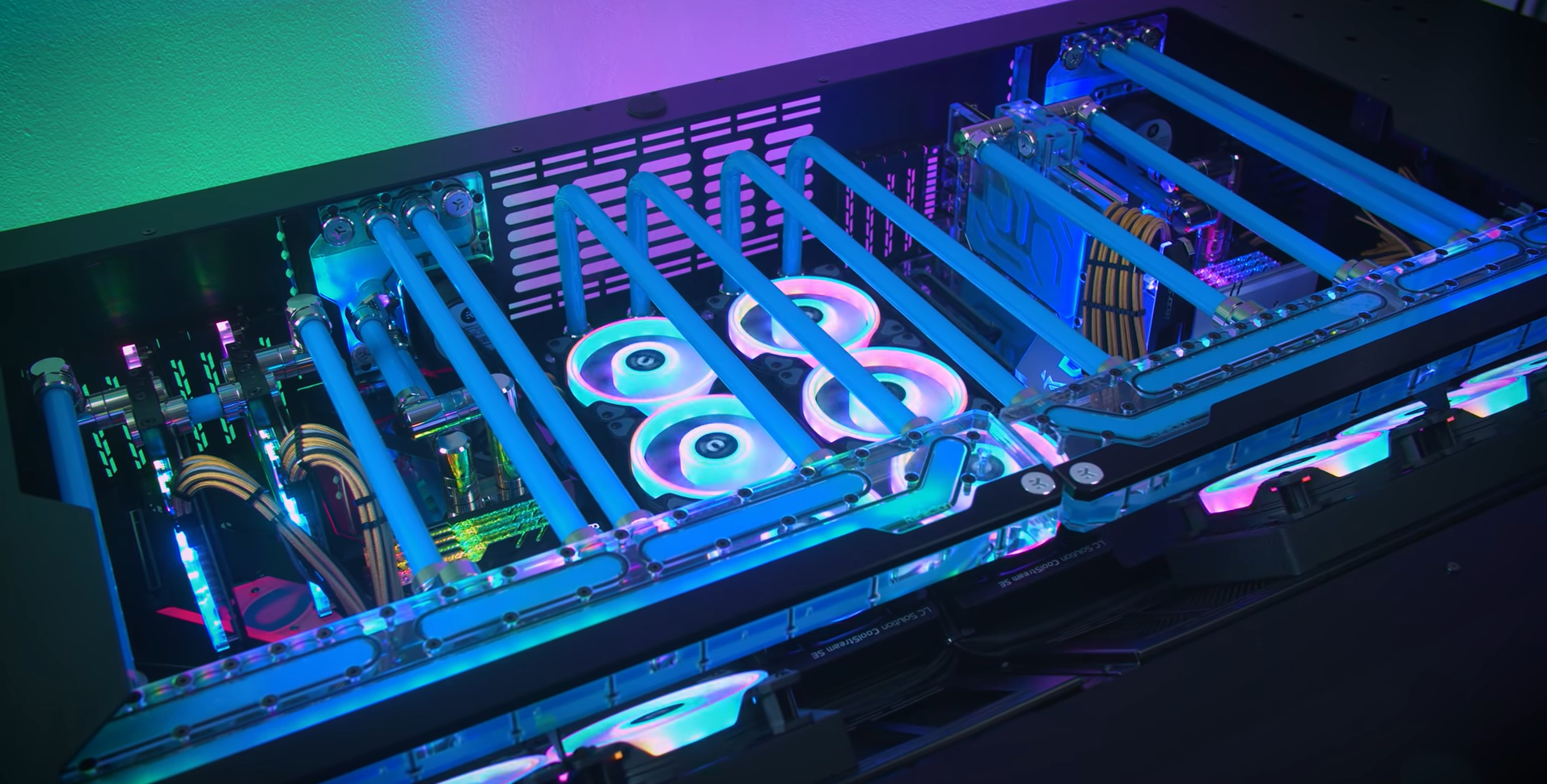
Should you choose a high-performance liquid cooling system over the traditional air cooling solution?
Before answering, let’s dive into the key differences and factors to consider.
Liquid Cooling vs. Air Cooling: Key Differences
Air Cooling Systems
Air cooling is the traditional method of managing heat. It relies on a CPU fan, a heatsink, and additional chassis and GPU fans to expel warm air.
- Mechanism: The CPU fan works alongside a metal heatsink to draw heat away from critical components. The hot air is then pushed out of the case, keeping the internal temperature stable.
- Performance: As components generate more heat, fans spin faster, producing more noise but ensuring effective heat dissipation.
Liquid Cooling Systems
Liquid cooling systems, in contrast, use coolant-filled tubes, radiators, and water blocks to regulate temperature.
- Mechanism: Liquid circulates through the system, absorbing heat directly from components. It then travels to a radiator where the heat is dispersed before the liquid cools down and recirculates.
- Performance: Liquid cooling is generally more efficient, quieter, and visually appealing, often favored by enthusiasts and gamers.
How Liquid Cooling Works
Liquid cooling offers a cutting-edge solution for thermal management, combining functionality with aesthetics. Here’s how it operates:
Core Components
A standard liquid cooling system includes:
- Pump: Circulates coolant through the system.
- Radiator: Dissipates heat absorbed by the coolant.
- Fans: Aid in cooling the radiator.
- Reservoir: Stores excess coolant.
- Water Blocks: Transfer heat from components to the liquid.
- Hoses: Connect the system and ensure coolant flow.
Working Principle
- Heat Absorption: Thermal paste enhances heat transfer from the CPU/GPU to the water block.
- Coolant Flow: The pump moves coolant through the water block, where it absorbs heat.
- Heat Dissipation: The heated coolant travels to the radiator, where fans disperse the heat into the air.
- Recirculation: The cooled liquid flows back to repeat the process.

Advantages of Liquid Cooling Systems
- Compact Design
Liquid cooling systems are less bulky than air cooling, freeing up space for additional components. - Quiet Operation
Unlike air cooling, which can sound like a jet engine under heavy loads, liquid cooling is much quieter. Noise is limited to the pump and radiator fans, which are barely noticeable. - Targeted Cooling
Liquid cooling allows precise control, focusing on heat-sensitive components like the CPU and GPU. - Efficient Heat Dissipation
Liquid cooling ensures a continuous flow of coolant, preventing the recirculation of warm air and reducing thermal damage. - Cleaner Setup
Air cooling systems tend to accumulate dust over time, while liquid cooling setups remain cleaner, maintaining your PC’s aesthetic appeal.
Considerations When Choosing Liquid Cooling
Custom Loops vs. AIO Systems
- All-in-One (AIO) Systems: Pre-assembled and easy to install, AIOs are affordable and practical for most users.
- Custom Loops: Highly customizable but expensive and complex to set up. These are best suited for enthusiasts who demand maximum performance.
Coolant Options
- Distilled Water: Preferred for its purity, minimizing the risk of blockages.
- Additives: Specialized coolants can improve aesthetics, lower freezing points, and include anti-corrosion or antibacterial properties for enhanced system longevity.
Is Liquid Cooling Worth It?
For casual users, air cooling remains a cost-effective and reliable choice. However, if you’re building a high-performance PC or seeking a quieter, sleeker, and more efficient solution, liquid cooling is the way to go.
Conclusion
A custom liquid cooling system is a dream come true for PC enthusiasts seeking peak performance and aesthetics. For those new to liquid cooling, AIO systems offer an easy and budget-friendly entry point. Whether you aim to keep your processor cool, minimize noise, or simply enjoy a cleaner, more efficient setup, liquid cooling provides a superior alternative to traditional air cooling systems.
https://www.wikihow.com/Build-a-Liquid-Cooling-System-for-Your-Computer

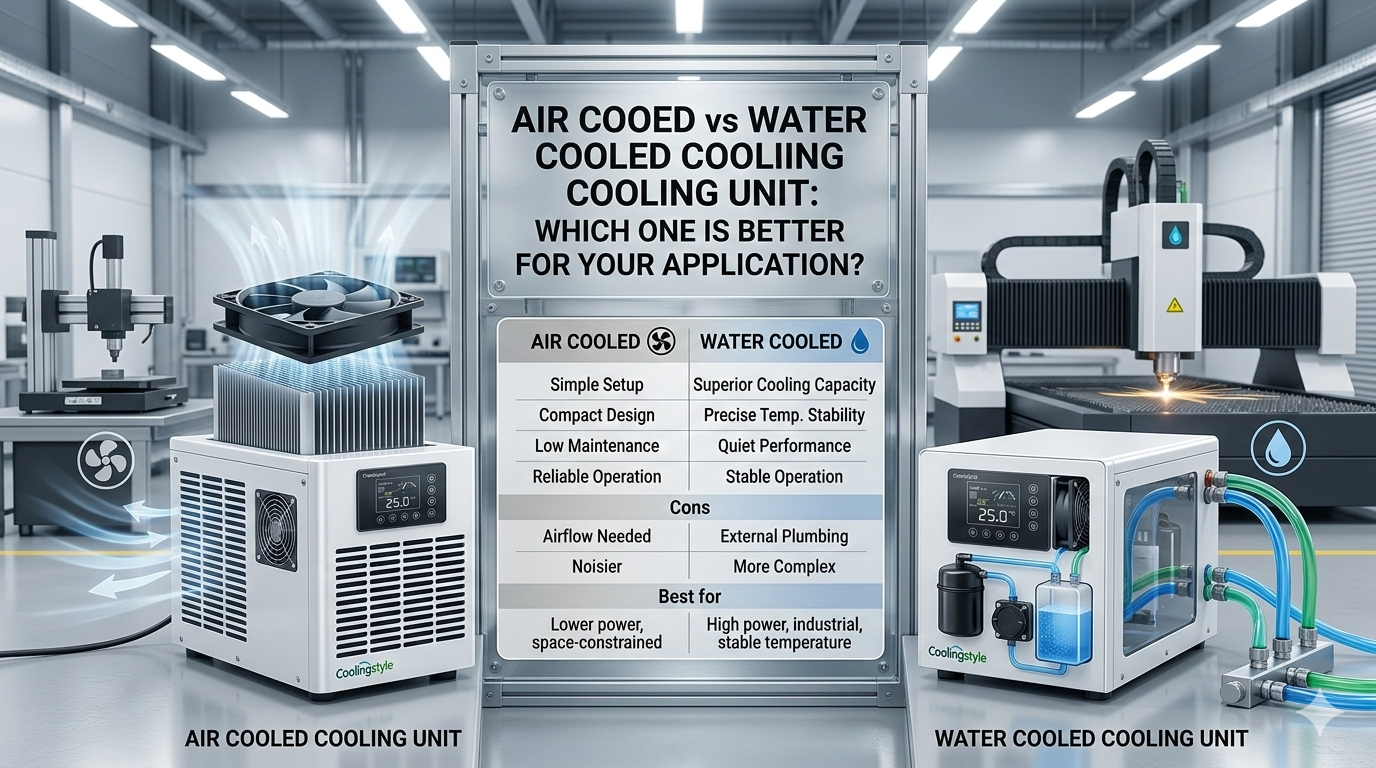
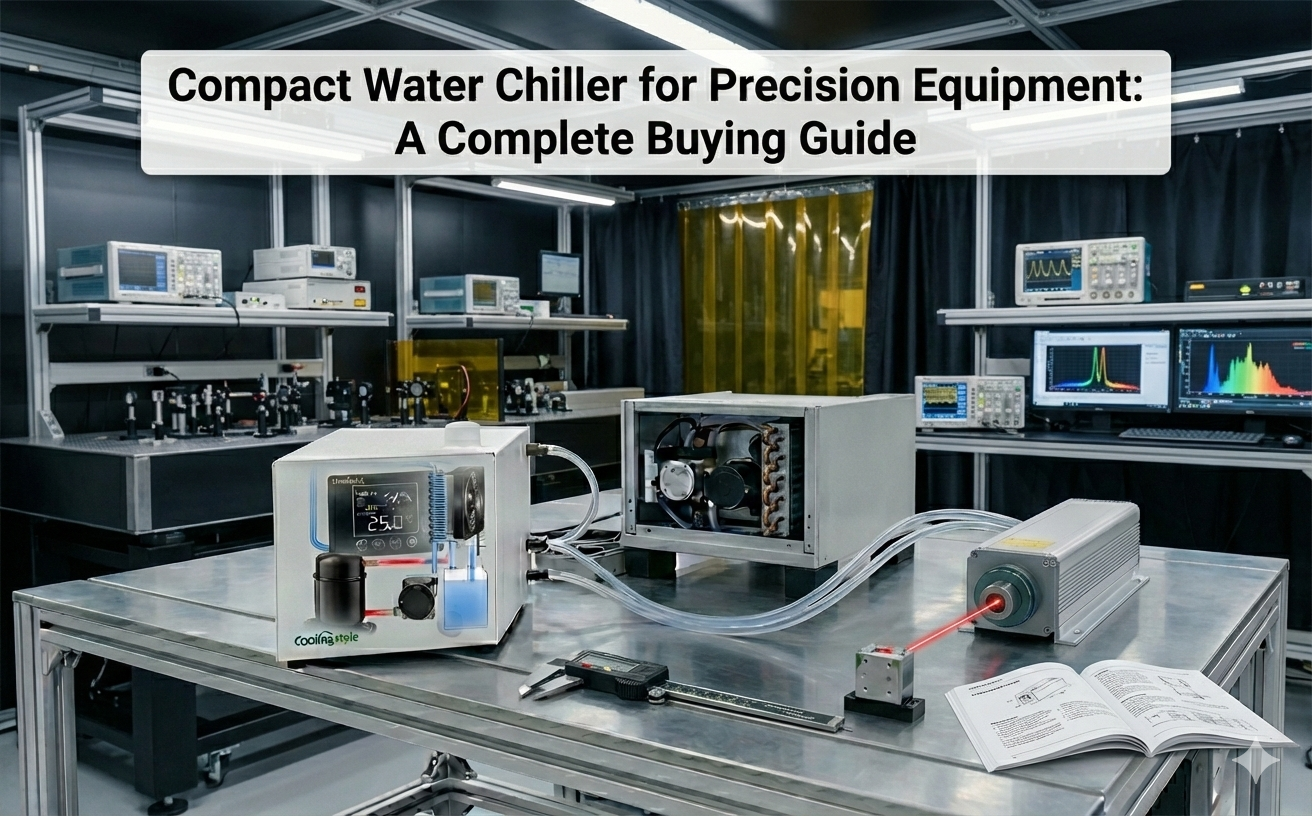
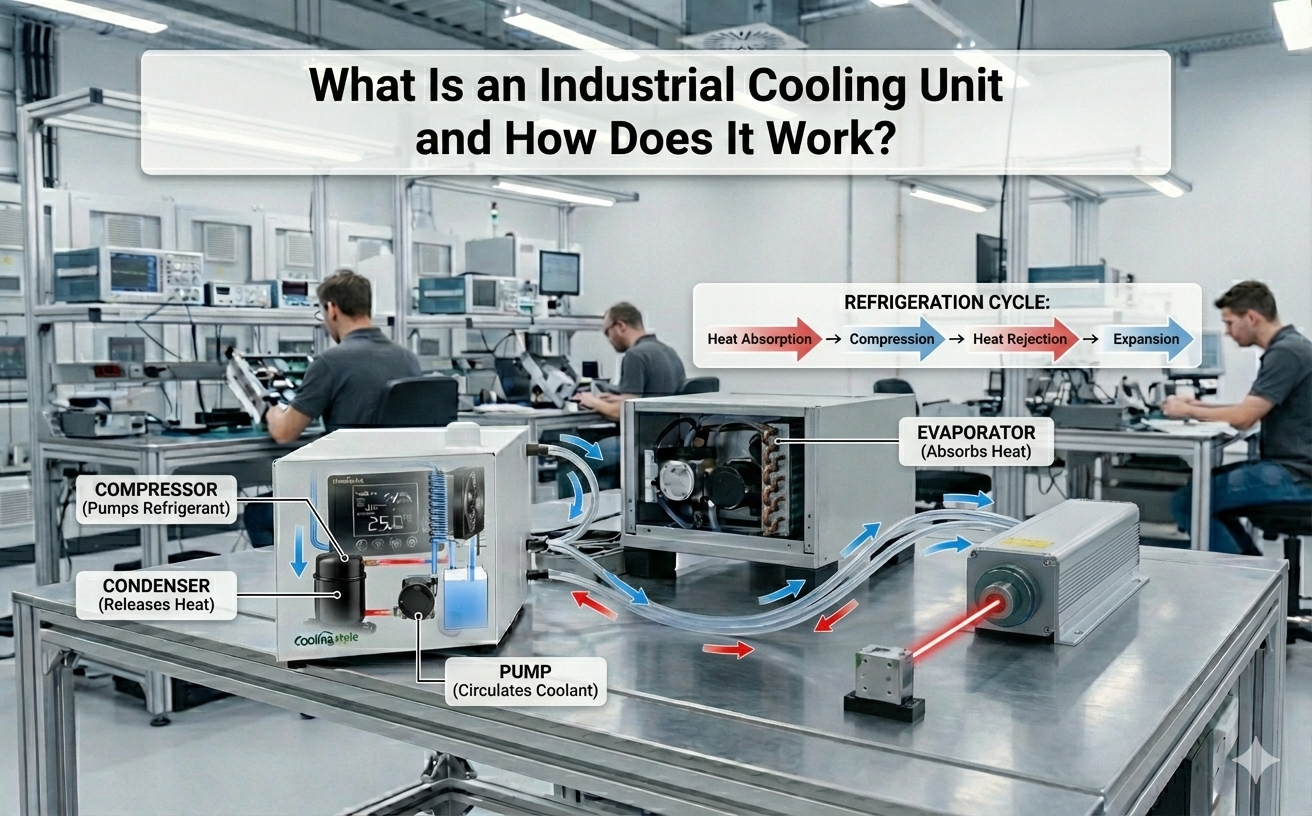

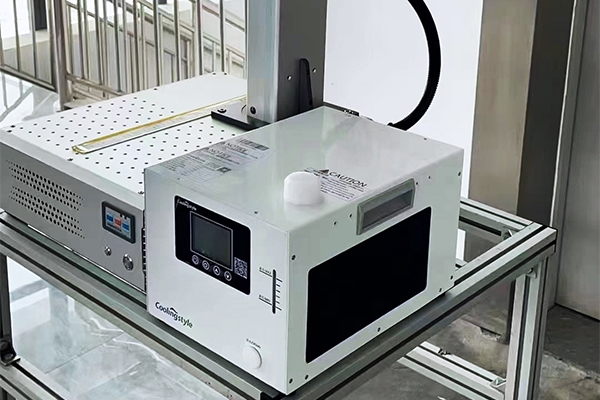

31 thoughts on “Liquid Cooling vs. Air Cooling – Which One Is Right for Your PC?”
It is actually a great and useful piece of info. I am happy that you just shared this useful info with us.
Please stay us up to date like this. Thanks for sharing.
Hello! I just want to offer you a huge thumbs up for your excellent information you’ve got right here on this post.
I am returning to your blog for more soon.
Way cool! Some extremely valid points! I appreciate you
penning this article plus the rest of the site is also really good.
Hello, its nice paragraph on the topic of media print, we all know
media is a wonderful source of data.
Thanks for sharing your thoughts on t. Regards
I know this web site offers quality depending posts and additional material, is there
any other web site which offers such things in quality?
Heya i’m for the first time here. I came across this board and I in finding It truly
useful & it helped me out much. I’m hoping to give something again and help others like you helped
me.
Amazing! This blog looks just like my old one!
It’s on a totally different topic but it has pretty much the same layout and design. Excellent choice of colors!
Great site. A lot of useful information here. I am sending it to
several pals ans also sharing in delicious. And of course, thanks to
your effort!
Have you ever thought about including a little bit more than just your articles?
I mean, what you say is important and everything. However
imagine if you added some great images or video clips to give your
posts more, “pop”! Your content is excellent but with images and videos, this website could undeniably
be one of the most beneficial in its niche. Very good blog!
Great post. I used to be checking continuously this weblog
and I am impressed! Very helpful information specially the last part
🙂 I care for such info a lot. I used to be looking for this particular
info for a long time. Thank you and good luck.
Hi Dear, are you genuinely visiting this site daily, if so after that you will definitely obtain nice knowledge.
Pretty! This was a really wonderful post. Many thanks for providing
these details.
What’s up to every one, as I am in fact eager of reading this blog’s post to be updated regularly.
It consists of pleasant material.
Hello There. I found your blog using msn.
This is an extremely well written article. I will make sure to bookmark it and return to
read more of your useful info. Thanks for the post. I will definitely comeback.
Its like you read my mind! You appear to know so much about this,
like you wrote the book in it or something. I think that you could do with some
pics to drive the message home a little bit, but other than that, this is excellent
blog. An excellent read. I will certainly be back.
Way cool! Some very valid points! I appreciate you
writing this write-up and the rest of the website is also really good.
I like reading a post that can make people think.
Also, many thanks for allowing for me to comment!
Hi, everything is going sound here and ofcourse
every one is sharing information, that’s truly good,
keep up writing.
Asking questions are actually good thing if you are not understanding something entirely, except this
piece of writing gives good understanding even.
Thanks in favor of sharing such a pleasant thinking, post is fastidious,
thats why i have read it completely
Great post.
I think what you posted made a lot of sense.
However, think on this, suppose you added a little
content? I ain’t suggesting your information isn’t solid., but
what if you added a title that grabbed a person’s attention? I mean What
does the whole set liquid cooling system include? – Custom Micro Cooling Solutions is kinda
boring. You might peek at Yahoo’s home page and note
how they create post headlines to get viewers interested.
You might add a video or a related picture or two to get people interested about everything’ve written. Just my opinion, it would bring your blog a little livelier.
After looking into a few of the blog articles on your website, I honestly like your technique
of blogging. I saved it to my bookmark site list and will be checking back in the near future.
Please check out my web site as well and tell me what you think.
Flüssigkeitskühlung vs. Air Cooling – Which One Is Right for Your PC? – Kundenspezifische Mikrokühlungslösungen
aygigyginxv
[url=http://www.g4yq2074iam7a50m58ulvu8mr4467i5os.org/]uygigyginxv[/url]
ygigyginxv http://www.g4yq2074iam7a50m58ulvu8mr4467i5os.org/
Are there any unique ways to utilize the heat generated by a computer to benefit the environment or offset energy costs?
There’s definately a lot to find out about this topic.
I really like all the points you made.
Hello! I’ve been following your web site for a
long time now and finally got the courage to go ahead and give you a
shout out from Porter Texas! Just wanted to tell you
keep up the great work!
Appreciate the recommendation. Let me try it out.
What’s up to all, how is all, I think every one is getting more
from this site, and your views are pleasant in favor of new
viewers.
Thank you for your support.